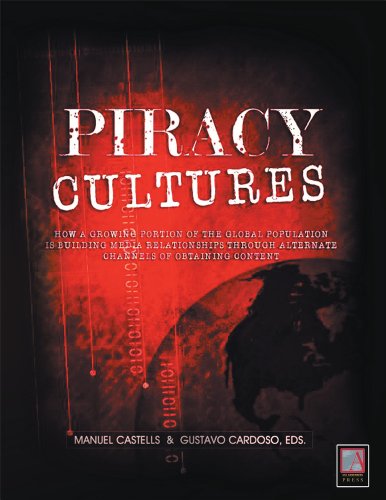

Most ebook files are in PDF format, so you can easily read them using various software such as Foxit Reader or directly on the Google Chrome browser.
Some ebook files are released by publishers in other formats such as .awz, .mobi, .epub, .fb2, etc. You may need to install specific software to read these formats on mobile/PC, such as Calibre.
Please read the tutorial at this link: https://ebookbell.com/faq
We offer FREE conversion to the popular formats you request; however, this may take some time. Therefore, right after payment, please email us, and we will try to provide the service as quickly as possible.
For some exceptional file formats or broken links (if any), please refrain from opening any disputes. Instead, email us first, and we will try to assist within a maximum of 6 hours.
EbookBell Team

4.7
56 reviewsWhat are "Piracy Cultures"? Usually, we look at media consumption starting from a media industry definition. We look at TV, radio, newspapers, games, Internet, and media content in general, all departing from the idea that the access to such content is made available through the payment of a license fee or subscription, or simply because its either paid or available for free (being supported by advertisements or under a "freemium" business model). That is, we look at content and the way people interact with it within a given system of thought that sees content and its distribution channels as the product of relationships between media companies, organizations, and individuals effectively, a commercial relationship of a contractual kind, with accordant rights and obligations.
But what if, for a moment, we turned our attention to the empirical evidence of media consumption practice, not just in Asia, Africa, and South America, but also all over Europe and North America? All over the world, we are witnessing a growing number of people building media relationships outside those institutionalized sets of rules.
We do not intend to discuss whether we are dealing with legal or illegal practices; our launching point for this analysis is that, when a very significant proportion of the population is building its mediation through alternative channels of obtaining content, such behavior should be studied in order to deepen our knowledge of media cultures. Because we need a title to characterize those cultures in all their diversity but at the same time, in their common placeness we propose to call it "Piracy Cultures."